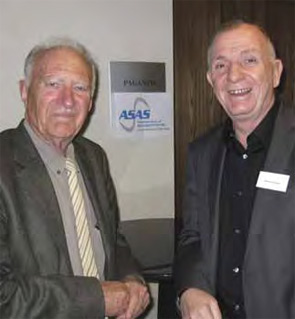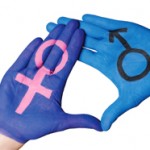Fifteen years ago, a small group of academic rheumatologists began meeting to discuss a common clinical interest in ankylosing spondylitis (AS). Their work launched a dialogue that has had an enormous impact on the field of rheumatology—and on the lives of people with AS. A disease with little in the way of common measurement tools, AS soon gained center stage in rheumatology as treatment with tumor necrosis factor (TNF) inhibitors showed dramatic results for this previously intractable condition. Those advances would not have been possible without the pioneering work of this dedicated group of international collaborators, according to members of the Assessment of SpondyloArthritis international Society (ASAS)’s Executive Committee and others in the rheumatology community.

What began as an initiative to develop core measures to assess improvement and remission in the context of clinical trials later blossomed into a whole new way of viewing the disease process itself. “I think ASAS really stepped into what was essentially a vacuum,” remarks John D. Reveille, MD, professor of internal medicine, Linda and Ronny Finger Foundation Distinguished Chair in Neuroimmunologic Diseases, and director of the division of rheumatology and clinical immunogenetics at the University of Texas Health Science Center in Houston. Dr. Reveille is also a member of the ASAS Advisory Board and president-elect of the Pan American League Against Rheumatism (PANLAR). “Nobody was addressing outcome measures in AS [at that time]—it was appalling.”
Small Steps
At the time ASAS was formed (it was then known as the ASsessments in Ankylosing Spondylitis working group), “people all over the world were using very different approaches to assess outcomes in spondyloarthritis, and there seemed to be relatively little consensus or systematic approach,” notes Dr. Walter P. Maksymowych, FRCP (C), a scientist at Alberta Heritage Foundation for Medical Research, professor of medicine at the University of Alberta in Edmonton, Canada, and a member of the ASAS Executive Committee.
The task that the core group of investigators set for themselves was to develop a core set of measures to assess effectiveness of drug therapy in patients with AS. ASAS Executive Committee secretary Martin Rudwaleit, MD, associate professor and director of the rheumatology department at the Evangelisches Krankenhaus in Hagen, Germany (formerly at Charité University Hospital in Berlin), was drawn to ASAS by colleagues Jürgen Braun and Joachim Sieper. They were members of the original group that convened along with other notable AS experts (Maxime Dougados and Désirée van der Heijde among them) in Amsterdam for the formative meeting. Dr. Rudwaleit notes that ASAS’ beginning coincided with the imminent release of newer nonsteroidal antiinflammatory drugs (NSAIDs) and the TNF blockers. “It became clear,” says Dr. Rudwaleit, “that we really needed standards for outcomes to measure therapeutic response.”
